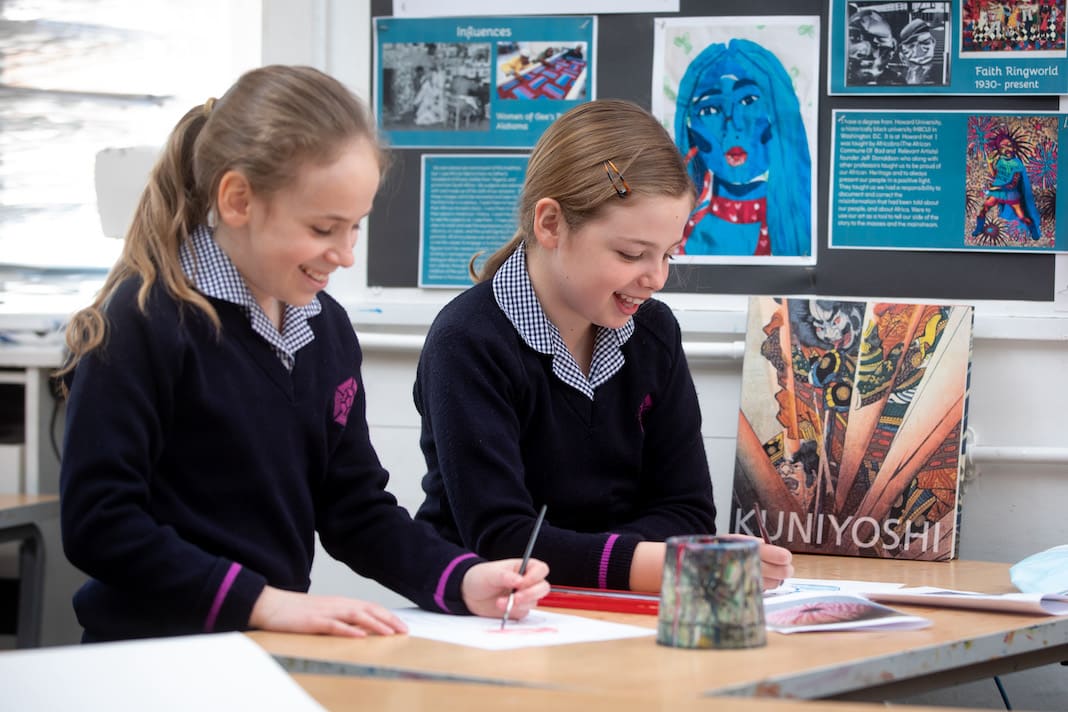Faith Hagerty, Head of More House School in Knightsbridge, explores how access to creative subjects and the arts can help every learner to reach their potential
It was dance lessons that launched my journey into the creative world. For other young people it might be drawing, cooking or playing a musical instrument. The skill itself is, of course, a wonderful thing for building opportunities for future life and careers, but the real story here is in the confidence that comes from the creative process.
In my 15 years of teaching Drama, I have seen countless pupils enter Senior School weighed down by the perception that they are not ‘academic’ due to having a specific learning need. In particular, the label of dyslexic or dyscalculic is a heavy burden for a young child to carry as it often means they feel unable to match their peers in their learning. Creativity, in its many forms, can open the door to that learning because of the free thinking and self-confidence that it develops.
Hannah Gallagher, now a 25-year-old Teaching Assistant at More House, is certain that it was involvement in drama that opened the door to the academic world when she entered Senior School. She says: “As a child growing up with learning difficulties, my confidence was knocked. By physically throwing myself into drama, where there were no educational barriers, I was not only able to express myself, have an emotional outlet and build confidence outside of the classroom, but later down the line to develop my independent thinking skills “.
“Creativity in its many forms can open the door to learning because of the free thinking and self-confidence that it develops”
The GCSE and A-level specifications for Art, Music and Drama create opportunities for conceptual thinking of the highest order. Pupils are encouraged to engage in sophisticated concepts that they explore through their chosen medium, always considering a specific audience. Taught content is less of a feature than student-led exploration, meaning that all learning profiles can be catered for in a way that may be less possible in other subjects. It is no wonder, therefore, that we find many brilliant minds who also happen to have specific learning needs flourishing and accessing top grades in the creative arts.

This begs the question of what we mean by ‘facilitating subjects’ when it comes to university applications. Traditionally speaking, universities would consider History, Geography, English, Maths or a language as facilitating, but one could challenge this. If we redefine what we mean by facilitating, then surely the subjects that build confidence through the creative process and therefore pave the way for students to access other areas of the curriculum, are really the ones doing most of the facilitation?
While the arts have many important roles to play in society as a whole, schools are where enjoyment and understanding of the arts begins for most young people. Schools which decide to sideline creative subjects for the sake of the supposedly more ‘academic’ options are removing a vital gateway to success for the pupils in their care. Here at More House, we believe it is imperative that every child is offered opportunities to work creatively right across the curriculum through project-based work, as well as joining in with choirs, musical groups, art clubs and drama productions. All of these opportunities during their school career help to build both their skills and their self-esteem.
More House School morehouse.org.uk
Further reading Hampstead Fine Arts College on the value of vocational qualifications
You may also like...

























